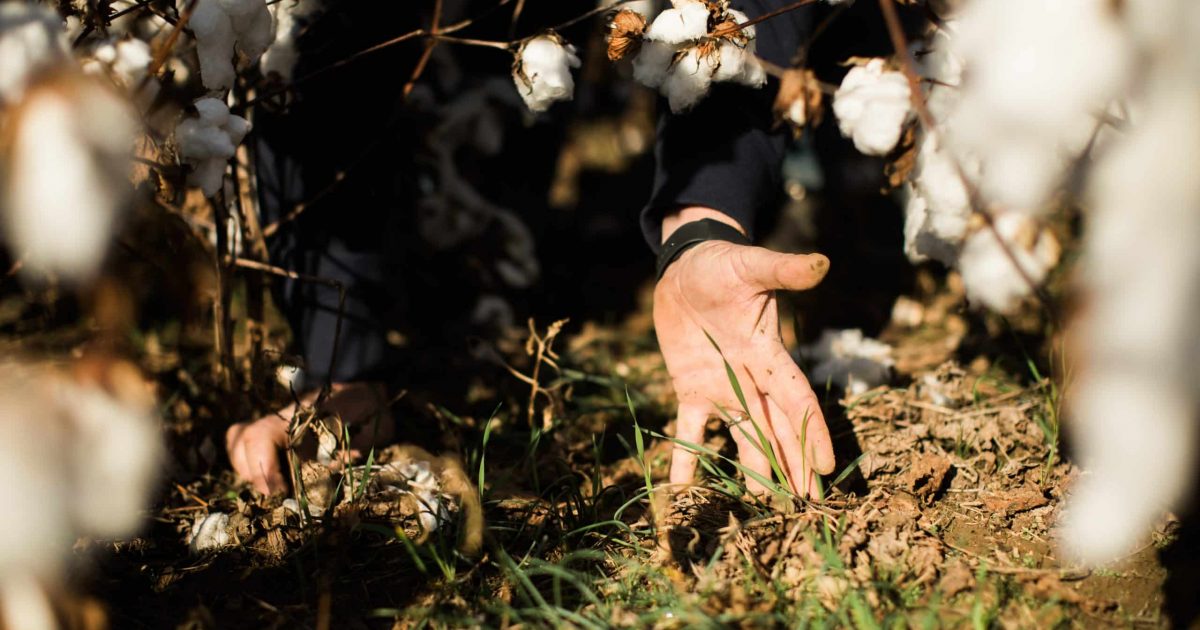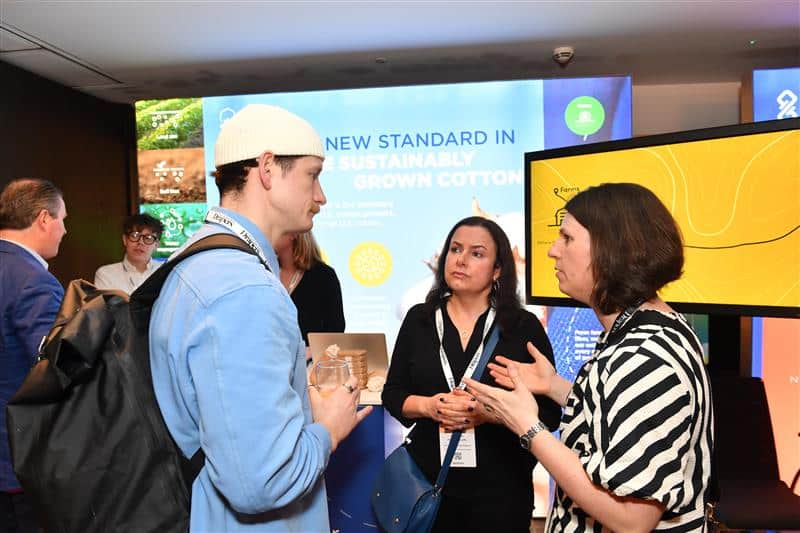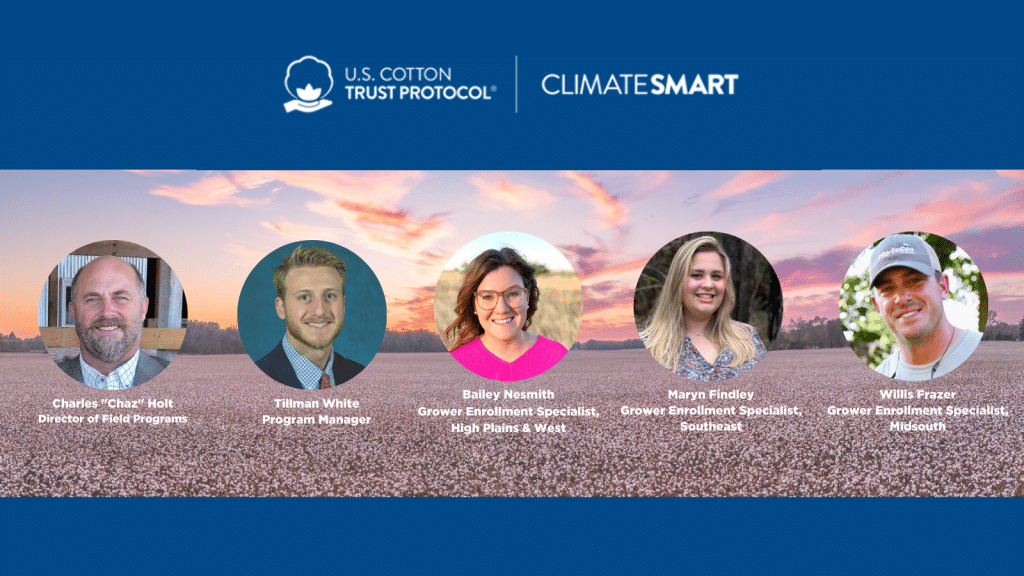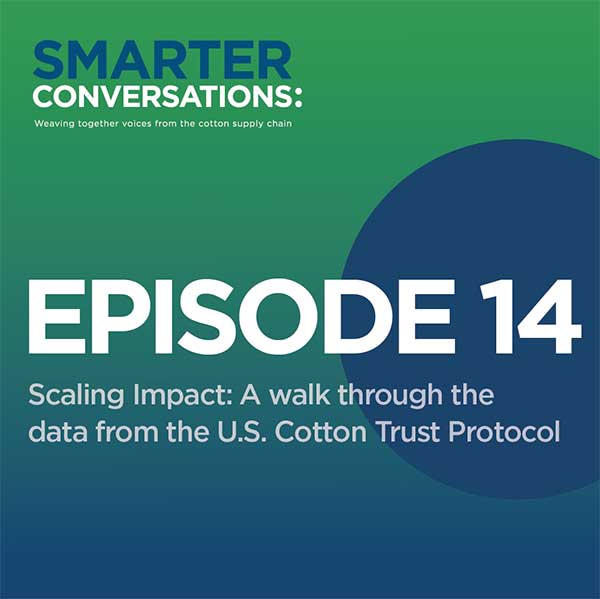Air, water, minerals, and organic matter—both living and non-living– are the basic ingredients of soils. They occur in many combinations. And the relative proportions of these ingredients affect how soil behaves, what kinds of plants grow in it, and how well they grow.
Continuously improving soil health is critically important for the preservation of our planet. Soil is the basis of our growers’ livelihoods, therefore protecting it is both an economic and sustainable commitment.
U.S. Cotton Trust Protocol growers implement regenerative agriculture practices to maintain and further improve soil quality. Common regenerative practices include cover-cropping, no-or low-tillage, rotational farming, precision agriculture, integrated pest management, and use of inputs that are landscape specific. Over time, regenerative practices can increase productivity, allow biodiversity to flourish, and naturally reduce the need for external inputs required for plants.
To measure the outcomes of these growing practices, the Trust Protocol tracks data its grower members input on soil conservation and soil carbon, as well as four other sustainability metrics—water use, GHG emissions, land use and energy use. This helps them measure their progress and identify opportunities to continuously improve. In 21/22, the Trust Protocol recorded a decrease in soil loss and an increase in soil carbon when compared to the 20/21 group of growers. This year-on-year verified data is shared with Trust Protocol members across the supply chain and published in our annual report.
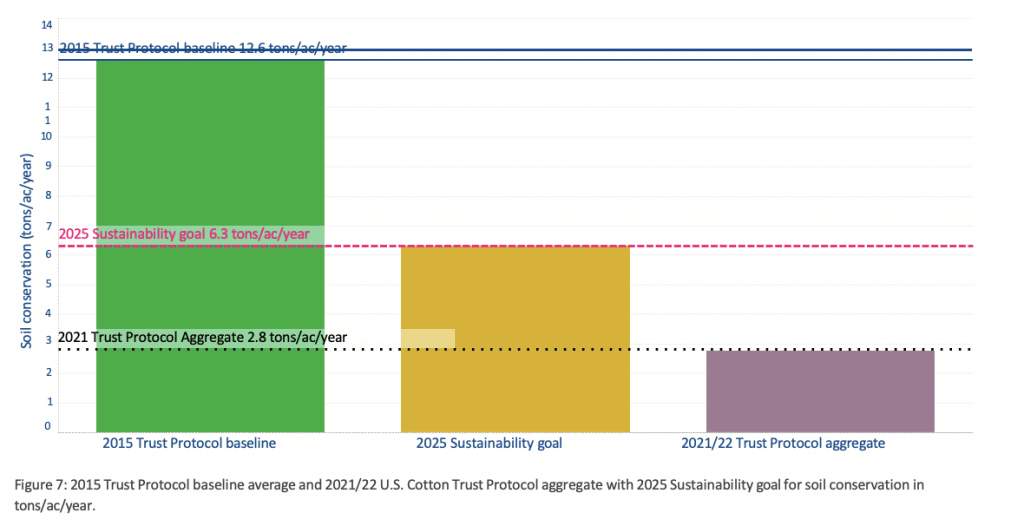
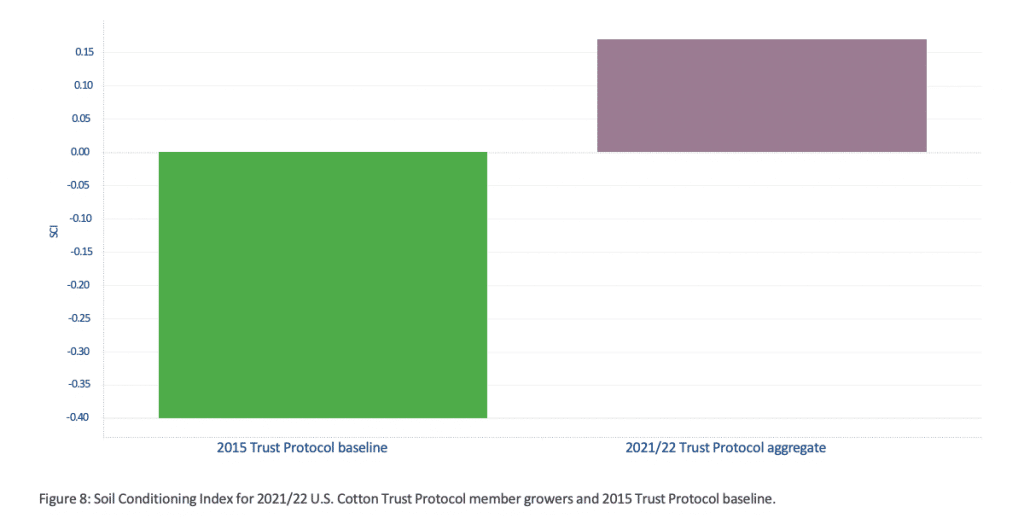
During our recent farm tour with brands and retailers, we visited the family-run farms of Bob Walker, a Trust Protocol grower from Tennessee and Sledge Taylor, a Trust Protocol grower from Mississippi, to learn more about the practices they are implementing to continuously improve soil health and the impacts they are seeing.
Q: How are you working to continuously improve soil health on your farm?
Bob: Every acre of our farm has been under continuous no-tillage or minimum tillage for more than 20 years. This means that we avoid mechanical tillage of the soil and attempt to keep soil
disturbance to an absolute minimum, which is one of the main principles of regenerative agriculture. By not tilling the soil and keeping soil disturbance low, we are helping increase organic matter over time.
Q: Why are regenerative practices important to soil health?
Sledge: Regenerative practices such as no-till and cover crops work really well together to protect our soils and further build them. No-tilling the soil means that there is residue left from the previous year’s crop that stays on the land and acts like a shield. When it rains, there is a tremendous amount of energy in each drop that hits the soil. When you have the armor of the previous year’s crop residue to protect the soil—similar to an umbrella, the raindrop doesn’t hit the soil as hard and wear it down.
For the last five years, 95% of the acres we’ve planted have been without tillage. And virtually 12 months out of the year we have something green and growing on our soils—which includes cover crops in addition to our seasonal row crops like cotton.
Q: What technology do you use to monitor soil health?
Bob: We use a variety of different technologies to monitor our soil throughout the year. We perform tissue testing across the farm, which are diagnostic tools that help with monitoring and managing soil fertility. This is done by pulling samples of leaves from cotton plants during the growing season, which are then sent to an agronomic lab—often at local universities or companies with testing programs where they evaluate the plant’s nutrient levels.
We also receive weekly satellite imagery that allows us to see specific areas in our fields that may need attention. From satellite imagery, we receive color coded maps that allow us to detect potential soil nutrient deficiencies, pest issues or diseases that may be impacting our crop. This also means that we can address issues on a timely basis—instead of being surprised during harvest and its potentially too late to adjust.
Q: What is one of the most important practices you’ve implemented on your farm to improve soil health?
Sledge: I’ve been farming for 50 years, and I helped my dad and grandfather as a young boy. One of the issues I saw very early on was the ravages of erosion, or what is also known as soil loss. To reduce erosion, in addition to implementing no-till practices, we also started planting cover crops. For the last three years, 50% of our acres have had cover crops planted on them.
Cover crop roots help improve soil structure and stability, which dramatically reduces soil erosion and runoff, increases infiltration, and leads to building organic matter in the soil.
Q: How is your membership in the U.S. Cotton Trust Protocol helping you improve your soil health?
Bob: The data and feedback we receive as members of the Trust Protocol provides us with a bar for where to start and where we can make improvements across our operation. The information allows us to look everything over with a critical eye and see where we can get better and what practices we may be able to implement to be even more sustainable.
Sledge: This farm is my canvas. It’s my family’s legacy and we’re always working to do the best we can. When you grow cotton, you’re always learning. It’s always a process. And as a member of the Trust Protocol, we’re receiving feedback to help us monitor what we are doing so that we can further improve our sustainability practices.

